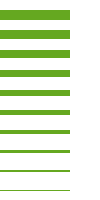https://doi.io-warnemuende.de/10.12754/msr-2004-0057
doi:10.12754/msr-2004-0057
© Author(s) 2004. This work is distributed
under

Dieses Werk ist lizenziert unter einer Creative Commons Namensnennung - Nicht kommerziell - Keine Bearbeitungen 4.0 International Lizenz.
The Oder Estuary - against the background of the European Water Framework Directive
Abstract. European environmental policy aims at a preservation of the natural heritage and an improvement of environmental quality. The framework for Community action in the field of water policy, the Water Framework Directive (2000/60/EC) of 23 October 2000, and the Habitats Directive have a prominent role in this respect (92/43/EEC). In the Habitats Directive the management of the sites (Article 6) and the creation of a Natura 2000 network plays a crucial role. The Water Framework Directive requires a large scale river basin - coastal zone management, too. The Recommendations of the European Parliament and of the Council of 30 May 2002 concerning the implementation of Integrated Coastal Zone Management in Europe (2002/413/EC) and are not limited to nature protection alone and go much further with respect to the management, but are limited to the coastal zones: (a) protection of the coastal environment, based on an ecosystem approach preserving its integrity and functioning, and sustainable management of the natural resources of both the marine and terrestrial components of the coastal zone; (b) recognition of the threat to coastal zones posed by climate change and of the dangers entailed by sea level rise and the increasing frequency and violence of storms; (c) appropriate and ecologically responsible coastal protection measures, including protection of coastal settlements and their cultural heritage; (d) sustainable economic opportunities and employment options; (e) a functioning social and cultural system in local communities; (f) adequate accessible land for the public, both for recreational purposes and aesthetic reasons; (g) in the case of remote coastal communities, maintenance or promotion of their cohesion; (h) improved coordination of the actions taken by all the authorities concerned both at sea and on land, in managing the sea-land interaction. All these aspects reflect very well the demands and challenges we are facing. Basis for the regional implementation of the directives and the recommendation are a detailed knowledge about the ecosystems, a sound understanding of the natural processes in these systems and an awareness of the direction of changes as well as the underlying driving forces. But we have to go further and consider the human factor and its influence as well. This report compiles original articles and shortened diploma theses. It contains new basic information on the Oder estuary, which is useful to support the implementation of European (water) policy. The thematic focus is on water quality, but relevant interdisciplinary approaches are included, too.
